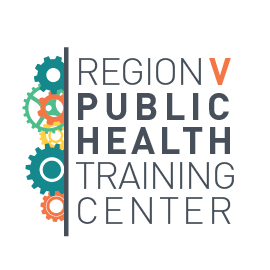Interprofessional education (IPE) is based on the concept that health professional students are best trained on the skills, knowledge, and attitudes that promote population health when they learn with and about others from diverse health science fields. Previously, IPE has focused almost exclusively on the clinical context. This study piloted and evaluated an IPE learning experience that emphasizes population health in a sample of public health undergraduate students. We hypothesized that students who completed the 2-hour online asynchronous module would better understand the value of public health’s role in interprofessional teams, the benefit of interprofessional teamwork in improving health outcomes, and the value of collaborative learning with other interprofessional students. Students engaged in pre- and post-training assessments and individual reflections throughout the module. Sixty-seven undergraduate public health students completed the module and assessments. After completion, a greater proportion strongly agreed that students from different health science disciplines should be educated in the same setting to form collaborative relationships with one another (19 vs. 39% before and after completion, respectively). A greater proportion also strongly agreed that care delivered by an interprofessional team would benefit the health outcomes of a patient/client after the training (60 vs. 75% before and after, respectively). Mean scores describing how strongly students agreed with the above two statements significantly increased post-training. A greater proportion of students strongly agreed that incorporating the public health discipline as part of an interprofessional team is crucial to address the social determinants of health for individual health outcomes after taking the training (40 vs. 55% before and after, respectively). There was little change in attitudes about the importance of incorporating public health as part of an interprofessional team to address social determinants of health for population health outcomes, which were strongly positive before the training. Most students reported being satisfied with the module presentation and felt their understanding of interprofessional practice improved. This training may be useful for students from all health disciplines to recognize the benefits of engaging with and learning from public health students and to recognize the important role of public health in interprofessional practices.
Recent Posts
Post Categories
- Communications (2)
- Community Engagement (4)
- Data (6)
- General RVPHTC (13)
- Health Equity (21)
- Mental Wellbeing (4)
- News (1)
- Policy (8)
- Racial Equity (12)
- Student Development (7)
- Uncategorized (6)
- Workforce Development (25)
